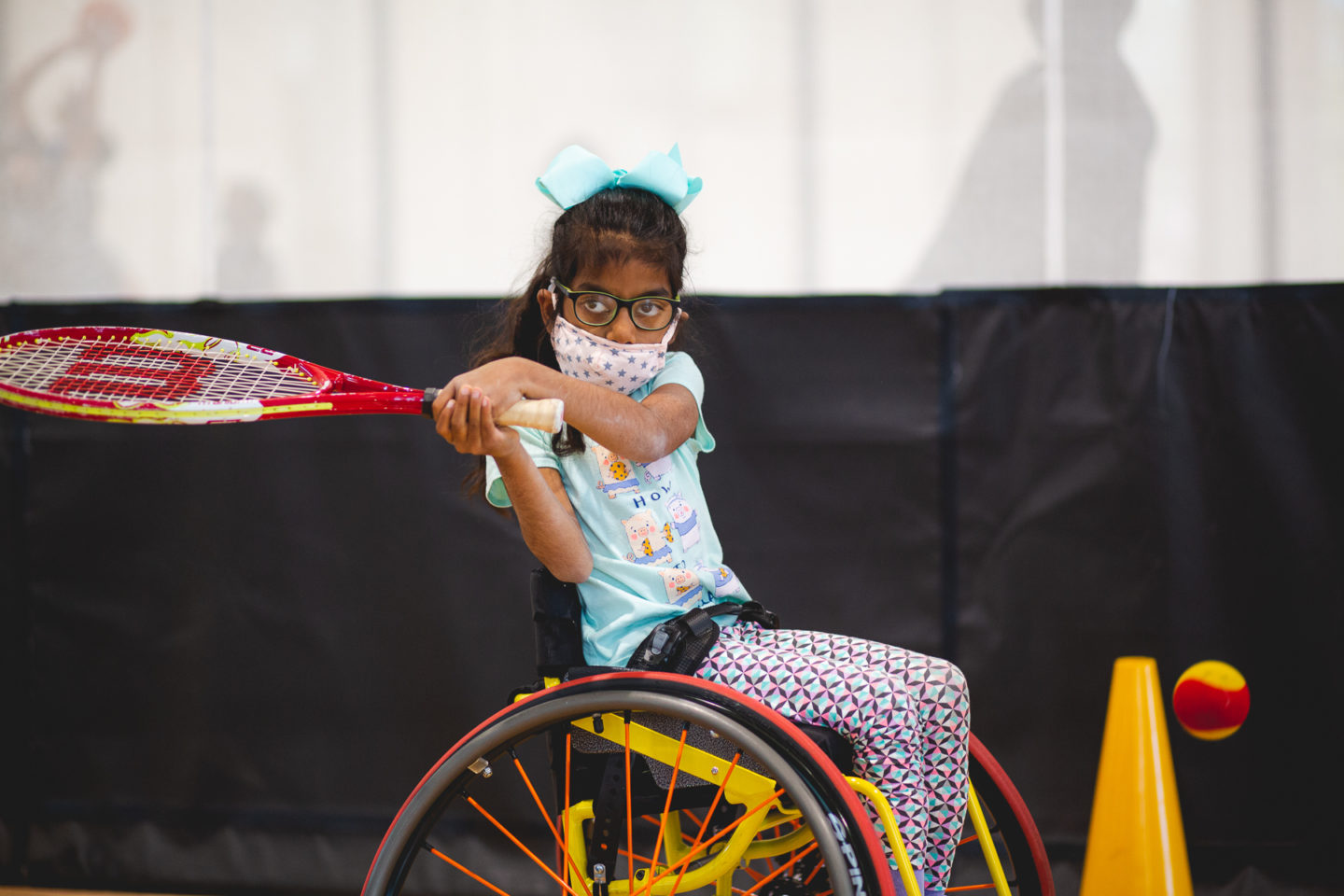Children with muscle spasticity caused by cerebral palsy or other movement disorders may find help in our Advanced Management of Pediatric Spasticity Program, a collaborative partnership with Helen DeVos Children’s Hospital.
AMPS offers a specialized approach that’s unique to each child, utilizing the combined expertise of rehabilitation physicians and physical therapists from Mary Free Bed together with neurologists, neurosurgeons and orthopedic surgeons from Helen DeVos Children’s Hospital.
We work with you and your child to develop an interdisciplinary plan of exceptional care that achieves the best functional outcome possible, putting your child on the path to independence.

Who We Serve
AMPS is appropriate for children and teens who can move but whose spasticity makes movement, posture and balance challenging.
Spasticity affects each child differently, and it can often be painful. It’s typically is associated with conditions such as cerebral palsy, multiple sclerosis, brain injury, stroke and spinal cord injury.
Comprehensive Services
Our AMPS specialists meet regularly to discuss each patient’s unique presentation and goals, and how to best meet those goals. Interventions may include:
- Selective dorsal rhizotomy
- Intrathecal baclofen pump
- Multilevel orthopedic surgeries
- Complex Botox® treatments with serial casting
After the team conference, we’ll review our recommendations with you. A physician skilled in ongoing spasticity management will oversee your child’s plan of care.
What to Expect
Your child’s individualized treatment plan begins with evaluations by a rehabilitation physician, physical therapist and neurologist.
Assessments will include:
- Exact location and degree of spasticity
- Underlying conditions that cause spasticity
- Any other muscle tone or movement disorders related to spasticity
- Muscle strength and control
- Your child’s ability to complete daily activities, such as self-care.
We’ll also discuss your goals for treatment, a crucial step in development of your child’s personalized management plan. Goals may include:
- Improved walking
- Comfort and participation in daily activities
- Ease of self-care
- Improved positioning and lessening of muscle contractures.
Your child’s team may recommend additional services to aid in treatment, including:
Computerized gait analysis
Mary Free Bed’s Motion Analysis Laboratory is a high-tech facility where experts study human movement. An evaluation of how your child’s body moves while walking will help our team make comprehensive treatment recommendations.
Orthotics
Our pediatric orthotists work closely with your family to provide devices that support walking and other types of movement and activities. Some devices also help to stretch muscles through prolonged positioning.
Physical therapy
A physical therapist will evaluate your child’s passive range of motion, functional skills, strength and ability. The goal of ongoing physical therapy is to help your child experience as much independence as possible and to increase his or her ability to participate in daily activities.
Health care providers: Click here for information about Intrathecal Baclofen Emergency Algorithms (ITB) and Autonomic Dysreflexia (SCI above T6).


